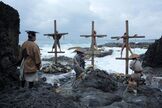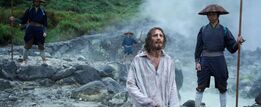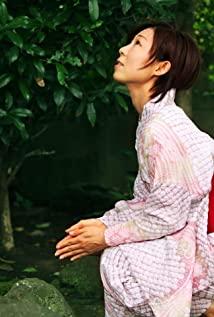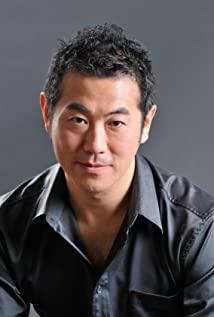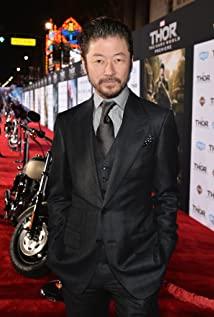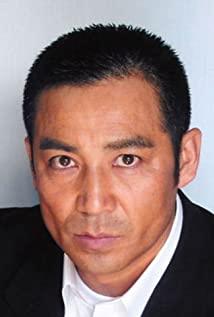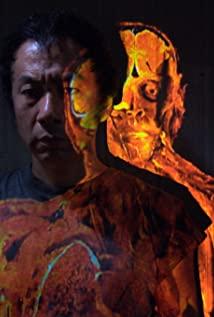On the subway at 7:30 in the morning, I swear to myself, MD, if the two films I grabbed with the determination to die in the French exam are not good, I will be the life of Jarman and Scorsese.
Thank you, Jarman, Caravaggio gave me at least half a year longer.
But what I want to talk about today is Silence.
The triumph of Caravaggio was all-encompassing. The exposed body is the self-identification of the erotic nature of the film and the pontoon that leaps from the imaginary world to the symbolic world. The poetic lens language and the poetic monologue are synchronized and isomorphic. Real figures such as the pope, painter, and businessman lay history flat and invite fictional characters. Figures dressed in modern clothes and speaking English with a Scottish accent enter the Renaissance frame, throwing away the imposed cross and clenching the dagger engraved with "Hopeless and Fearless", and the signifiers proclaim their independence, like the darkness of the opening title. Like a paintbrush, it flaunts its own grammar, a grammar that can only be achieved in a movie that is analogous to a dream.
"Caravaggio" is light.
And "Silence" is of course heavy.
Martin Scorsese has been preparing for filming for nearly 30 years, and the number of adaptations of the novel has expired and then renewed. The actor has been changed from Daniel Day-Lewis to Andrew Garfield. is four generations. As soon as filming started, there was a fatal accident on the set. During the awards season, the Oscars gave only one photography award.
The film is 161 minutes long, or two hours and forty minutes.
The theme is the tragic massacre of Japanese Catholics during the Tokugawa shogunate era and the struggle and choice of two Portuguese missionaries from the Jesuit Society in Japan.
beheaded. hole hanging. Seawater immersion. Scorching sun. Buried alive.
ignorance. madness. Selfish. arrogant.
torn. sink. despair. dark.
How should we understand "After Auschwitz, writing poetry is barbaric." Are there gaps left between writing and not writing? How wide is such a rift? Wide enough to enjoy the same freedom and discipline as any other text?
Writing poetry after Auschwitz is, indeed, what Blanchot calls "the struggle between narrative and siren": the fire seen by the naked Jew, the white light seen by the little girl in Hiroshima, the Falling Man of 9/11 The earth in front of them, the blue sky seen by Catholics who have been immersed in the sea for three days, and the ethereal song of the siren are generally untouchable and without trace. The text about Auschwitz, although it is also the earth and the blue sky, cannot be "represented" and narrated, so the impulse and effort to reproduce and narrate is not only as futile as Achilles and the turtle, but also congenitally guilty .
Reminds me of the world-famous "Son of Thor". The documentary style of Auschwitz's Secret Diary, the quasi-POV perspective and motion follow-up that imitates the witnesses, and the deliberate loss of focus to omit the depth of field is Zygmun Bowman's condemnation of the sin of instrumental reason in the Holocaust. The personal choice and persistence of history are the overcoming of the instrumental rationality by existentialism initiated by Kierkegaard. So at the end of the film, in front of the big screen, I closed my eyes and couldn't accept the complete tragedy of this post-human being in the nature of pre-human beings: the camera is up, originally a blond boy of Germanic blood (actually Polish, great irony and sadness!) Gently put out the faint hope of the Jews crawling in front of him, leaving only the dead forest watching the inexplicable fate of the post-human beings.
Deleuze believes that the lens of the film has the duality of the experienced subject and the unexperienced subject. And in the middle of the two ends of experience and inexperience, "Son of Thor" dances gracefully, and Achilles seems to catch up with the turtle.
I'm sorry, dear readers who read this, I'm going to disappoint you. After watching the clumsy and heavy "Silence" and then thinking back to the "Son of Thor" flying lightly over Auschwitz, I always have the feeling of "smart words and fresh benevolence".
I read a paper that advocates the language ethics attitude of "critical thinking", and advocates non-contribution, non-possession, and non-confrontation. I am as ignorant as I am, sorry, I can't really evaluate.
My dear friends, the only thing I can do is to recommend these three films to you. They are Caravaggio, Son of Saul, Silence.
View more about Silence reviews





